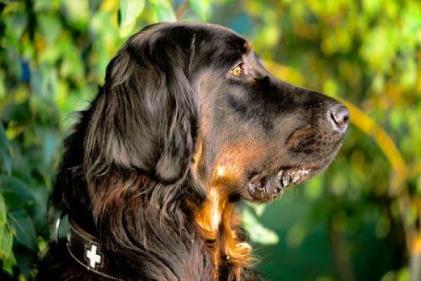 Choosing the right food for your dog can be a tricky process, so many pet owners stick with buying the same food for their dog’s entire life.
Choosing the right food for your dog can be a tricky process, so many pet owners stick with buying the same food for their dog’s entire life.
However, our pet’s dietary needs can and do change over time due to factors like their life stage, their overall health, and their activity level.
In addition to consulting with your veterinarian about nutrition as your dog undergoes changes in life stage and lifestyle, it’s vital to watch out for certain visible signs that a change in diet is needed.
Here are five common signs you’ll want to be wary of.
1. Dull, flaky coat
Diets rich in essential fatty acids are a key component in keeping a dog’s skin healthy, and therefore his or her coat in tip-top shape. Many dog foods are designed with skin and coat improvement in mind. Look for a diet containing both Omega-3 and Omega-6 fatty acids to make your dog’s coat shiny and bright in no time.
2. Lethargy/weakness
If your dog had recently undergone a stressful event, illness, or surgery, he may understandably be a little worn out. Diets with high levels of antioxidants can help boost the immune response to accelerate your dog’s recovery and get them back on their feet in no time. Remember: a dog who is suddenly acting lethargic and weak should be evaluated by a veterinarian before making dietary changes.
3. Older age
Depending on the size of the animal, pets are considered middle-aged to senior around 5-7 years. And as our dogs age, their nutrient requirements change too. Senior diets, for example, are generally lower in calories but higher in fibre, and often have supplements specific to this life stage such as joint support and antioxidants.
4. Weight gain
It doesn’t take much for a pet to wind up with some extra weight on their frame and this is particularly noticeable with small dogs. If your pet needs to lose a few inches, a diet specifically designated for weight loss will ensure that they still have the proper amount of essential nutrients, vitamins, and minerals while ingesting fewer calories. These diets take advantage of the latest research in pet weight management to ensure your dog is on their way to a healthier weight. If your dog is extremely overweight or obese, however, it's best that you consult with your veterinarian for a therapeutic nutritional solution.
5. Itchy dog
Allergies are common in pets, and food is just one of several possible causes. Regardless of the cause, though, allergic pets may benefit from a low-allergen diet that reduces the amount of potential allergens they are exposed to. Your vet can recommend either a prescription diet or an over the counter sensitive skin diet, depending on your pet’s particular needs.
Image via Pinterest.












